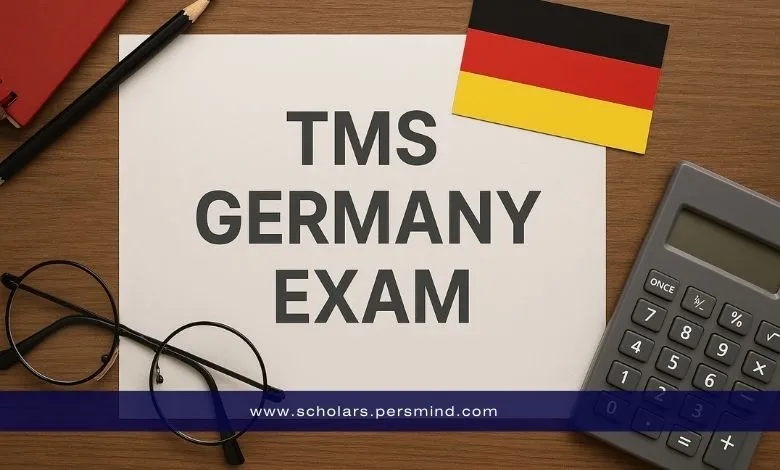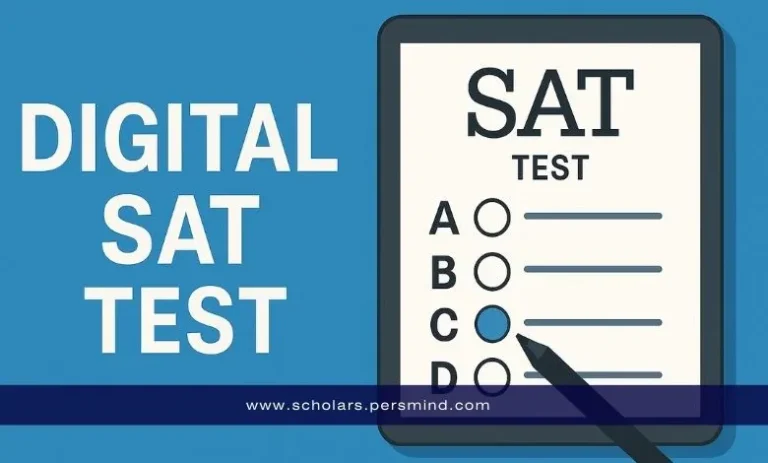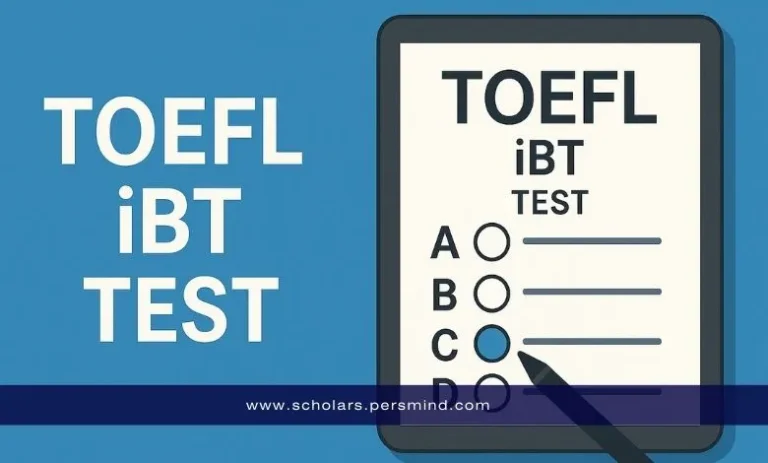If your goal is to study medicine, dentistry, or veterinary medicine in Germany, the TMS – Test für Medizinische Studiengänge is one of the most important selection tools used by German medical faculties to assess academic readiness and cognitive performance under time pressure.
The exam is paper-based, conducted in German, and held over one full day at designated centers across Germany, with tens of thousands of participants each year. Results are published on your online account at announced dates: June (for the spring session) and December (for the fall session).
What is the TMS Exam and Why Do Universities Require It?
The Test für Medizinische Studiengänge is a subject-specific aptitude test for medical sciences that measures logical and scientific reasoning, memory, visual perception, and processing speed under timed conditions.
It does not require prior medical knowledge, as it evaluates learning aptitude rather than factual recall. Many German universities include the TMS score as part of their admission criteria, and the test is scientifically developed and psychometrically standardized.
TMS Dates and Registration
The exam is held twice a year (Spring/Fall), with registration opening in three phases during July and August:
The first phase is for first-time participants,
The second and third phases are for specific categories of repeat test-takers.
Registration is completed through the official Test für Medizinische portal, with immediate payment required to secure your seat.
Be sure to respect the deadlines—no waiting lists are available after registration closes.
Tip: Register early and choose a test center that is convenient for transportation and accommodation. Invitations are typically published in your account around one month before the exam date.
Fees and Payment Methods
Fee: €100, payable during registration via credit/debit card or Klarna/Sofort (for German, Austrian, or Dutch accounts).
Non-refundable: Once payment is made, fees cannot be refunded due to logistical costs (venue reservation, booklet printing, etc.).
Only complete your registration if you are sure you will attend.
Exam Structure and Duration
Language: German
Format: Paper-based, in-person in German test centers
Total duration: Around 5 hours of testing (plus organized breaks throughout the day)
The exam consists of multiple subtests (Untertests) that assess:
Visual pattern matching
Scientific-medical comprehension
3D tube figures (Schlauchfiguren)
Text reasoning (Textverständnis)
Tables and graph interpretation
Memory (Figuren/Fakten lernen): includes learning and recall phases
Exact subtest names and timing may vary slightly between preparation sources, but the core concept remains the same: it is a skills-based aptitude test, not a knowledge exam.
Important: The exam includes trial (unscored) questions, which do not count toward your result—up to 6 questions per section may be excluded from scoring.
There is no penalty for wrong answers, so avoid leaving questions blank.
How Are Scores Calculated? (Scoring, Standardization, and Percentile Rank)
Scoring begins with raw points (number of correct answers in scored questions), followed by an equating process to adjust for variations in test form difficulty and session timing.
Scores are then converted into a standardized scale with a mean of 100 and a standard deviation of 10 (most scores fall between 70–130), along with a percentile rank indicating your position among all test-takers.
Result release dates:
June 30 for the spring session
December 20 for the fall session
Score interpretation:
A score above 100 indicates above-average performance.
Universities may combine your high school GPA with your TMS score using different weighting formulas.
Score Validity and Retakes
You may retake the TMS only once within 12 months of your first participation (if you received a valid result).
Registration for repeat test-takers is available during Phase 3, subject to capacity limits.
Both results remain valid, and you can choose the higher score for your application.
Who Is the TMS For?
Students applying to Medicine, Dentistry, or Veterinary Medicine programs in Germany,
Especially when the university explicitly requires or values TMS results to improve ranking in admissions.
Always check your target faculty’s requirements via the program’s webpage or the official Study in Germany portal.
Keywords: TMS Germany 2025, Medical Admission Test Germany, Test für Medizinische Studiengänge, Medical Studies in Germany, TMS Requirements for International Students, TMS Germany Medical Exam
Focused 6–10 Week Preparation Plan
Week 1 – Level Diagnosis:
Take a full mock test to identify strengths and weaknesses. Pay attention to time management and smart guessing strategies.
Weeks 2–3 – Visual/Spatial + Scientific Reasoning:
Practice pattern matching, tube figures, and quick interpretation of graphs/tables with accuracy.
For scientific-medical comprehension, extract the core idea and conclusion from short texts without over-focusing on minor details.
Weeks 4–5 – Memory + Text Reasoning:
Figuren/Fakten lernen: Train visual and verbal memory (names, ages, diagnoses) using spaced repetition.
Textverständnis: Practice selective reading and note keywords for faster answering.
Week 6 – Official Simulation + 100% Error Review:
Take two full mock tests under real conditions.
For each error, record the reason, the ideal solution, and how to avoid similar traps next time.
Time Management Tips:
Spend no more than 60–90 seconds per question, depending on the section.
Never leave questions blank—apply educated guessing when unsure.
Start with the subtest that gives you the most confidence and maintain a consistent pacing strategy.
Reminder: The Test für Medizinische is a skills-based exam, not a knowledge test.
Consistent practice under timed conditions makes the difference. (Private prep materials are unofficial; the official website remains the ultimate reference.)
Frequently Asked Questions
Can I register from outside Germany?
Yes, registration and account management are done online, but the test itself is conducted in person at official centers inside Germany.
Is the score valid for several years?
Yes, universities accept valid TMS scores in future admission rounds, according to each faculty’s policy.
Results remain accessible in your account for a limited time before archival.
Are wrong answers penalized?
No. Only correct answers are counted; wrong or blank answers do not reduce your score.
Trusted Official Links
Official TMS website: Information, test dates, registration phases, invitations
Fees and payment methods (€100): On the official site
Scoring system, percentile ranks, and result release dates: On the TMS portal
Study in Germany: Notes universities that require the TMS as part of admission – study-in-germany.com
Conclusion
If you’re aiming for a medical seat in Germany in 2026/2027, start now with a realistic preparation plan targeting each TMS section, register early in the phase that fits your profile through the official portal, and track deadlines and results via your account.
The TMS is a challenge of precision, time management, and reasoning—mastering these skills can be your gateway to studying medicine in Germany.




0 Comments